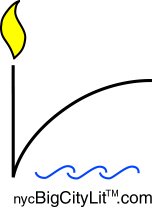
Poetry Feature:
'Only the Dead': Vietnam
From Both Sides Now: The Poetry
of the Vietnam War and Its Aftermath
Phillip Mahony, ed.
(Scribner Poetry, 1998, 314 pp., $16.00 paper)
We acknowledge and commend this comprehensive anthology compiled by Phillip Mahony, several of whose entries have been reproduced or excerpted in the present collection, especially poems by Vietnamese (see "Midnight").
Divided into ten sections, the book affords an exhaustive range of personal experience, from self-immolating Buddhist monks ("To Bear Any Burden") to boat people and other self-exiles ("Lost in a Foreign Silence").
An excerpt from the editor's preface follows. The book will be available for purchase at the June 15 recording session.
-- NJ/MH
My intention is to tell the story of the Vietnam War and its aftermath in an updated and compelling new manner. By doing so, I hope to stimulate discussion about the war at a time when our country, although increasingly surrounded by its aftereffects, seems all too willing to put that chapter in our history behind us.
There is, however, a second intention to this anthology. The long process that led to the first Xeroxing and cutting and pasting began one day in the Spring of 1995 when a small magazine assigned me to review a book of poetry by a man named David Vancil. It was his first book, and I had never heard of him before, but my interest was piqued because he was a Vietnam veteran, and some of his poems were about that experience.
The assignment couldn't have come at a better time. Despite being a lifelong lover of poetry, I had become disheartened by a sense that the poetry world was becoming monopolized by an elitist cartel of university creative writing teachers pumping out tediously obscure, self-referential word games, essentially for each other. Where do these people live? I wondered. What insulated, enchanted streets do they walk on that they can waste their time on such apparent meaninglessness? . . .
Vancil's book started me on a mission that came to be as much about the state of contemporary poetry as it was about the Vietnam War. Two years of research later, that mission culminated in the compiling of this anthology.
My second hope for this book, then, is that it might bring increased attention and respect to poetry that is relevant, important, and readable, poetry that aspires to matter, to confront and shine new light on significant events and issues of our time.
The book begins with poems about the self-immolations of the Buddhist monks in South Vietnam in the early 1960s, proceeds through the course of the war, and ends with poems about the related unresolved issues of today. . . . [It] is intended to be less a showcase for individual poets than for the art of poetry itself, and for poetry's unique ability to explore complex issues on all their multiple levels. . . .
The title, From Both Sides Now, refers initially of course to the Joni Mitchell song . . . a capsulation of the changes that were taking place in America during those turbulent years. As the body bags came home, Americans everywhere . . . were tragically awakening to things they really didn't want to know, things that would change forever their way of looking at their country, their leaders, and their place in the world. . . .
. . . Furthermore, the first post-war generation of Vietnamese-Americans--the children of those Vietnamese who fled to this country after the fall of Saigon, and, later, the sons and daughters of the boat people--are just now finding and exercising their unique and wonderful literary voices. Any reckoning of Vietnam War literature would be woefully incomplete without these, our new American poets.